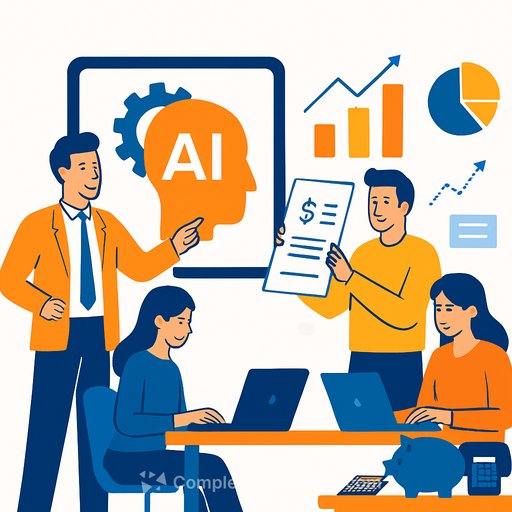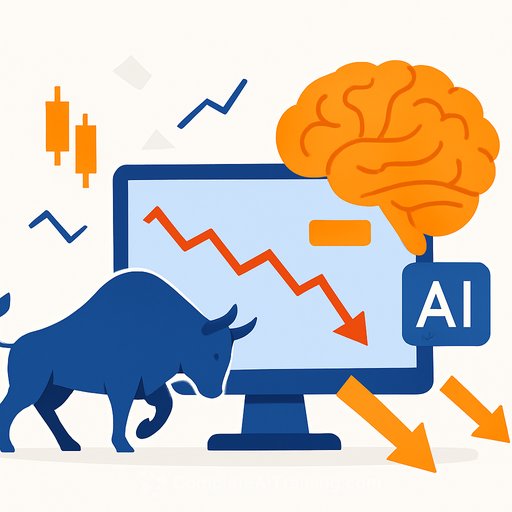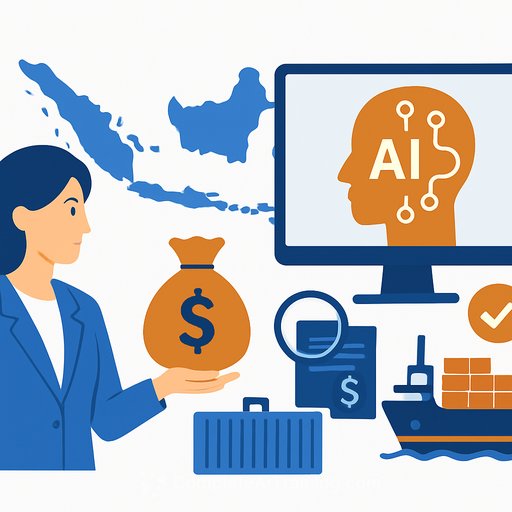Five Ways AI is Changing Finance Talent and How CFOs Are Responding
CFOs face constant pressure from tightening margins, rising expectations, and a surge of AI tools entering their tech stacks. As AI powers ERP platforms, planning tools, and reconciliation workflows, the finance function is shifting. Routine, transactional tasks are increasingly automated, pushing finance professionals to focus on higher-level work.
Today’s finance roles require more than just closing the books and reporting numbers. They demand analytical sharpness, business insight, storytelling, and strategic foresight. The goal is to guide conversations and influence decisions.
According to IBM’s 2024 CFO Study, 65% of finance leaders feel pressure to speed up ROI from technology investments. But technology alone won’t deliver results. Success depends on how finance teams engage with AI and whether they have the skills and mindset to turn AI capabilities into real business value. Here’s how AI is reshaping finance talent and what CFOs are doing to adapt.
AI Literacy Is the New Excel
For years, Excel and accounting standards set the baseline skills for finance teams. That’s shifting fast. AI now powers forecasting, reconciliation, and variance detection, so finance pros need to understand how these models work. This means knowing when to trust AI outputs and when to question them.
This doesn’t mean coding is mandatory. Instead, it requires curiosity about model logic, awareness of data limits, and confidence to challenge automated results. Without these skills, teams risk overlooking key risks hidden in AI processes.
AI Won’t Replace Your Team but Will Redefine Its Value
AI handles reconciliations, variance analysis, and data validation more efficiently, freeing finance teams from routine tasks. This shift means professionals spend more time turning insights into action.
The real advantage comes from how quickly and effectively teams translate AI-generated data into business decisions. This demands sharper judgment, more collaboration across departments, and a readiness to own decision-making.
Hybrid Roles Are Increasing in Value
CFOs aiming to boost their team’s impact should prioritize capability over headcount. The most valuable roles combine technical skills with strategic input, blending analyst, business partner, and technologist responsibilities.
FP&A functions are a prime example. AI-driven scenario modeling and rolling forecasts need professionals who can interpret results, engage stakeholders, and shape planning — not just generate reports.
Centres of Excellence as the New Playbook
Leading CFOs build internal AI fluency through data science centres of excellence—cross-functional groups focused on turning AI potential into business outcomes. These centres unite finance, IT, and operations leaders to test tools, scale successes, and close skills gaps.
The focus is on execution and embedding new workflows. IBM’s 2024 CFO Study found that top CFOs have launched such centres 104% more than their peers, though only 31% of all CFOs have done so. For finance teams aiming to speed up AI adoption and capability building, these centres are becoming essential.
Culture: The Accelerator or the Bottleneck
64% of CEOs in IBM’s report say AI success depends more on people’s adoption than the technology itself. AI requires a mindset open to experimentation, continuous learning, and cross-functional collaboration.
CFOs play a key role in creating this culture. They must make room for learning, reward curiosity, and link AI efforts to outcomes that matter. Recognizing and addressing fear or resistance within teams is also critical for smooth change.
What This Means for CFOs
CFOs leading the AI shift know technology alone won’t deliver transformation. The mindset and skills of the people using AI tools matter most. As AI grows in finance workflows, building an AI-ready function means developing new skills, rethinking roles, and fostering an environment where teams can confidently work with intelligent systems.
For finance professionals looking to build AI skills and stay ahead, exploring specialized AI courses can be a practical step. Resources like Complete AI Training’s finance-focused courses offer targeted learning paths to build relevant capabilities.
Your membership also unlocks:






